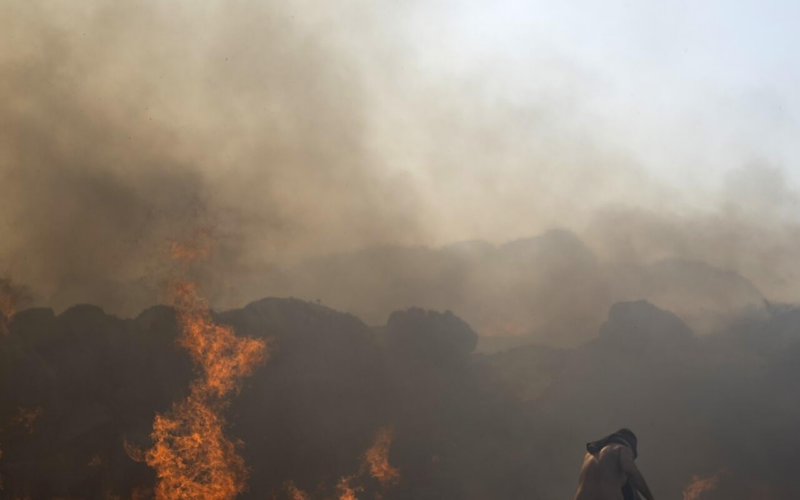Massive wildfires that tore through the northern suburbs of Athens earlier this week have left a path of destruction in their wake, with one person dead, homes and buildings reduced to charred ruins, and nearly 25,000 acres of forestland burned. While Greek authorities announced on Tuesday that the immediate threat to the capital had diminished, the risk of further fires remains high.
The fires, which began on Sunday in Varnavas, about 20 miles northeast of Athens, quickly spread due to strong winds, creating several dangerous fronts. Firefighters faced enormous challenges as gusts reignited flames almost as soon as they were extinguished. However, a lull in the winds overnight allowed emergency crews to make significant progress in containing the blazes.
Vasilios Vathrakogiannis, a spokesman for the Greek fire service, described the damage as “massive,” noting that the full extent of the destruction would only become clear once the fires are fully extinguished. He credited the proximity of Lake Marathon, which allowed firefighting aircraft to quickly reload water, as a critical factor in controlling the fires.
Greece has drawn lessons from previous catastrophic wildfires, particularly last year’s devastating blaze in Evros, the European Union’s worst on record. Civil Protection Minister Vassilis Kikilias referred to a “new doctrine” in firefighting, which includes enhanced measures such as the use of drones to combat the flames. Despite these advancements, the minister emphasized that the recent fires presented an “extremely dangerous scenario,” with gale-force winds, rugged terrain, and scattered residential areas complicating firefighting efforts.
The cause of the fire near Athens is still under investigation. It was one of more than 40 blazes that Greek firefighters battled on Monday, including a smaller fire in Glyfada, a coastal suburb of Athens, which was quickly extinguished. In that case, two 14-year-old boys have been charged with arson.
Greek television footage from Varnavas showed the aftermath of the fires: blackened trees, burned-out buildings, and charred vehicles. Authorities reported that at least 10 buildings were destroyed in the area. Tragically, a charred body was discovered in a burned-out business in the northern suburbs of the capital, believed to be that of a 63-year-old Moldovan woman who worked at the site.
As firefighters continue to tackle smaller pockets of fire, Greece has requested additional support from its European Union partners and other countries. Several water-dropping aircraft and hundreds of additional firefighters are expected to arrive soon to assist in controlling the situation.
Prime Minister Kyriakos Mitsotakis is scheduled to chair a meeting at the civil protection ministry to coordinate the response to the fires. The ministry announced that an electronic platform will be set up in the coming days for residents whose homes were destroyed or damaged, offering initial compensation of up to €10,000, with further subsidies to follow.








